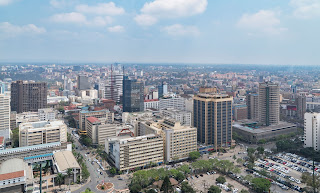Finding the right investments can be tricky, and if you’ve been searching for the best emerging market funds for your portfolio, you’ve probably discovered that you have quite a few options. But which option is the best fit for your needs? Here’s some insight into the different emerging market investments available.
What Is An Emerging Market?
There are three types of markets – developed markets, emerging markets and frontier markets. Developed markets include countries or markets such as the United States, Japan, Singapore, Australia and the United Kingdom as these are places with long-established stock markets and generally strong currencies.
Emerging markets are countries that have established markets and relatively stable currencies, but they aren’t quite as strong or as established as developed markets or access to their markets is more limited than with developed markets. These include countries such as Mexico, Brazil, Kuwait, Egypt, South Africa, India, Thailand and China.
Frontier markets are less developed or less accessible markets than emerging markets, but typically these are markets that are working toward or making progress toward becoming an emerging market. These include countries such as Kenya, Morocco, Nigeria, Vietnam, Romania, Jordan and even Iceland. Another frontier market is known as the West African Economic and Monetary Union (WAEMU), which is a group of African countries that includes Benin, Burkina Faso, Cote d’Ivoire, Guinea-Bissau, Mali, Niger, Senegal and Togo.
Countries are rated as developed, emerging or frontier markets by investment research firms or stock market indexes such as Morgan Stanley Capital International (MSCI), Standard & Poor’s (S&P) and Financial Times Stock Exchange (FTSE). These groups differ slightly in their definitions of each group. For instance, Argentina is classified by MSCI as an emerging market, while FTSE and S&P list it as a frontier market. The classifications also can change as the individual countries’ markets develop or decline.
In general, the less developed the market, the higher the risk. So, an emerging market investment might carry a higher risk than one in a developed nation. However, companies in developed nations can go bankrupt and dissolve and developed markets can face economic issues that devalue their currency. Of course, emerging markets and frontier markets also could potentially provide a higher return on investment than you might find in a developed market.
While an emerging market or frontier market investment might seem riskier on the face of it, you can minimize the risk by looking for the best emerging market funds. With a mutual fund or exchange-traded fund, you lower the risk because the fund is diversified and includes a variety of holdings. If one of the holdings declines in value, there are still other companies in the fund that might improve, which can keep the fund profitable.
When it comes to emerging and frontier markets, such as those in Africa, these markets can have some advantages over developed markets. These less developed countries tend to have younger, more consumer-driven populations which means there is high demand for new goods and services. In developed nations, populations are older and there is more focus on providing social security, health care and entitlements for an aging population.
Another reason to consider investing a portion of your portfolio into emerging market funds or frontier market funds is the social responsibility factor. When you invest in emerging markets, you are helping these countries grow and become stronger and more stable.
Stable, diverse economies are healthier economies and not only does this benefit the people in a specific country, but it also benefits entire regions and even continents. We can use the European Union as an example. When countries such as Greece faced a banking crisis, this affected the stability of the EU’s currency. When the countries are stable, the currency becomes stronger.
Even with countries that are not part of a “union,” stability is crucial. If your country is stable, but your neighbor has a poor economy, this can create problems. When you invest in emerging markets and frontier markets, this can have a domino effect, helping to improve economies in many countries or regions, but even helping the economy in a single country can be impactful and improve the lives of many people.
Of course, in the final analysis, every investor’s goal is to make money and, typically, to build a solid retirement plan. Investing in emerging and frontier markets can be a way to build your portfolio and help others at the same time.
What Are The Best Emerging Market Funds?
Every investor wants to know the answer to this question, but there’s no magic short of time travel that will truly tell us which funds will perform the best. As an investor, learning about the different types of investments and what to look for when investing can help you make the smartest possible decisions.
When searching for funds, you have the option of choosing mutual funds or exchange-traded funds (ETFs). Both types of funds are diversified, but the main difference between the two is that ETFs are traded like stocks, and you can buy and sell shares throughout the trading day. With a mutual fund, you can only sell shares at the close of the trading day.
ETFs provide you with more flexibility than mutual funds, and they tend to be less expensive. There’s also the added advantage of transparency. ETF managers will publish the total expense ratios, and this allows investors to truly see all of the costs they pay associated with that ETF.
Mutual fund managers aren’t as transparent, and this means that an investor might think they are investing in a highly diversified fund only to find out (after the fund declined sharply) that the manager put all of the holdings into one company or one sector. With an ETF, you have more certainty that what you see is what you get, in terms of holdings.
When searching for the best emerging market funds, you have the option of investing in businesses within a single country, such as a South Africa ETF or an Egypt ETF. You also have the option of investing in several countries in a specific region, such as a general Africa ETF or perhaps an emerging market ETF or a frontier markets ETF that invests in several emerging or frontier markets. Additionally, you can focus on a sector or industry in a frontier or emerging market such as energy or healthcare or infrastructure.
The best advice we can give is to research each investment carefully and include a mix of different types of investments in your portfolio. This might include stocks in specific companies, mutual funds, ETFs, etc. Choose from a mix of developed market investments and add a few emerging market and frontier market investments, as well.
When searching for the best emerging market funds or frontier market funds, research each of the holdings carefully as well as researching the sectors involved in the fund, such as energy or real estate. Take a look at the historical performance of the investment and, perhaps, compare it with a historically stable benchmark such as the S&P 500.
At Money Watch
Africa, we focus on investing in Africa and there are many exciting
opportunities to consider throughout this diverse, resource-rich continent.
With a little research, you might discover that the best emerging market funds
or frontier market funds can be found in Africa. To learn more about investing
in Africa, be sure to sign up for our newsletter.



